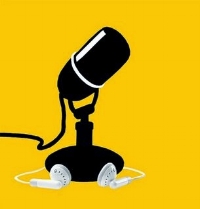There are two aspects of the disability community’s discussion about possible repeal of the Affordable Care Act that I think need more clarity. First is the enormous variety of reasons, good and bad, that people have for opposing the ACA. The second is what the actual consequences of repeal would be, (with or without replacement), for people with disabilities.
Over the weekend I did some brainstorming on these questions, which I want to share. I’m not going to go into depth on each item or observation. I just want these ideas out there.
First question: Why do people oppose the Affordable Care Act?
1. Philosophically & morally opposed to government involvement in another major industry - healthcare.
2. Philosophically & morally opposed to the individual mandate to buy health insurance.
3. Believe good health insurance is a reward for hard work, not a universal right.
4. Want better health insurance, but don’t trust the government to handle it right.
5. Believe the ACA is too much of a gift to private insurance & pharma industries.
6. Want a single payer national health insurance program.
7. Unwilling to sacrifice any (more) of their own wealth to make things better for others.
8. Wealthier people who resent paying higher taxes on their excellent private health insurance plans.
9. Marginally poor / working class people who resent paying premiums on the ACA markets while others get Medicaid.
10. Blame rate increases on the ACA, even though rates almost always went up each year BEFORE the ACA.
11. Still associate the ACA with the website rollout debacle.
12. Unaware of how crucial the ACA has already become to tens of millions of people.
13. Don’t understand how popular parts of the ACA, like covering pre-existing conditions, depend on unpopular parts, like the individual mandate.
14. Some younger, healthier people would rather pay extra-low premiums for very bare-bones insurance plans that the ACA prohibited.
15. Confusion … some honest, some willful … between repealing the ACA and fixing its flaws.
16. Not clear on what the ACA is, what Obamacare is, or how health insurance even works. It’s all confusing and yuck!
17. Believe the ACA is a disaster because “everyone” says so.
18. Instinctively don’t believe that Trump or like-minded Republicans would really do anything truly harmful.
19. Believe that some are just panicking, while others stoke the panic for partisan political reasons.
20. Compelled to undo Obama’s signature accomplishment because … well … OBAMA.
Note that you don’t have to think all of these things at once to oppose the ACA. In fact, some of these reasons come from polar opposite ends of the usual political spectrum. And, it should go without saying that I, personally, do not subscribe to all or most of these reasons. It should go without saying, but I feel like I should say it anyway. I love "Obamacare." It enrages me that a few slightly different election outcomes in the Midwest and we would be discussing serious plans to make the ACA better. But, things are as they are, and instead we're on the defensive. So ...
Second question: What are the likely consequences for disabled people if the Affordable Care Act is repealed?
First of all, let’s talk about people dying. Saying "disabled people will die" probably sounds like politically motivated exaggeration to a lot of people who aren't familiar with disability issues. Disabled people WILL die of course, if the ACA is repealed. Even if is replaced, if it is replaced with any of the models Republicans in Congress are batting around now, people will die who wouldn't have died otherwise.
However, premature death isn't the only consequence of ACA repeal for disabled people. To mention just a few others:
1. Ending Medicaid expansion in states that opted to implement it would cause many medium-income disabled people to lose Medicaid eligibility.
2. Losing Medicaid means losing home care, which many disabled people absolutely must have in order to live independently and productively.
3. More disabled adults would have to continue living with parents, or go back to living with parents, curtailing their life development and exhausting families physically, emotionally, and financially.
4. Many disabled people, deprived of work, unable to function independently due to loss of home care and other supports, would wind up in the care system of last resort: nursing homes ... paid for by Medicaid once every penny the person has is spent.
5. Most disabled people need and use health insurance all the time, not "just in case." We can’t shop around or risk going without in order to economize.
6. Chronic and delicate medical conditions would go untreated, or inadequately treated, resulting in more illness and disability, which is both traumatic and costly.
7. Lack of health insurance, and insecure health insurance, makes it much harder for disabled people to get and keep secure employment.
8. Disabled people who have jobs that include health insurance would be trapped by their jobs, unable to pursue better, more suitable employment opportunities.
9. Not being able to stay on parents' health insurance in the early 20s would make independence and starting strong careers much harder for disabled youth.
10. Disabled people who have managed to cultivate fulfilling life goals and dreams would be thrown back into sheer survival mode, to nobody’s benefit.
These consequences are serious enough, without even considering an actual death toll.
So, what does all of this suggest about how to confront ACA repeal? I don’t know. Maybe just that while we hammer away at the broad, blunt concept of ACA repeal, we also need to pick apart the opposition and take time to explain in detail what it all means specifically for disabled people.
Yes, it's annoying and offensive that we keep having to explain ourselves. But if ever there was a time to repeat the obvious to people who should already know, this is probably it.









